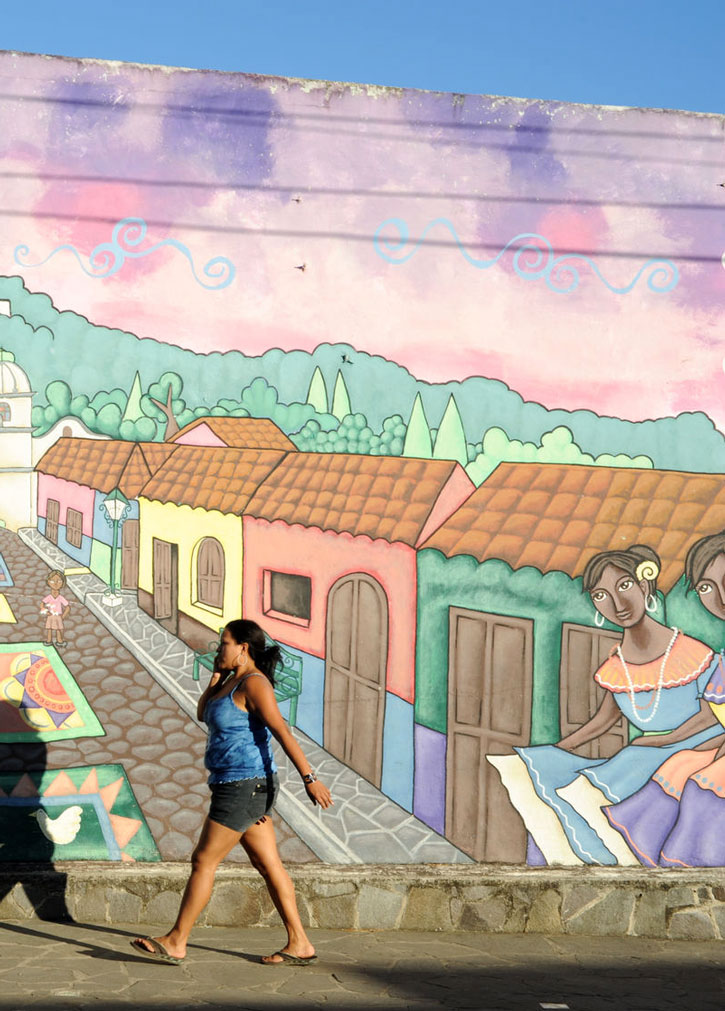Etiquette in El Salvador
Etiquette in El Salvador isn’t particularly complicated, but there are day-to-day situations to be aware of. Salvadorans are very kind and will often go out of their way to help others. If somebody does something for you, be sure to express your gratitude, and if possible, try to return the favor. It is not necessarily expected, but this kind of reciprocity is what fuels relationships here. If somebody invites you to their house for dinner, the same rules of etiquette apply as in your home country. It is considered polite to bring a bottle of wine, flowers, sweets, or some small token of appreciation. If you are invited out for a meal, it means that the person who has extended the invitation expects to pay for the meal. Listen for the phrase te invito, which literally means “I invite you.” Likewise, if you invite someone, you will be expected to pay.

Respect is expected to be given to older people by younger people, and to higher-status people by lower-status individuals. This includes using titles of respect such as Señora (Madam) or Señor (Sir) before people’s names and using the formal form of “you,” usted, instead of the informal vos.
As in all of Latin America, time tends to be a loose term in El Salvador, and tardiness is not considered rude. Expect most people to show up about an hour after your scheduled meeting time.
When entering somebody’s home or any commercial establishment, it is expected that you greet everyone who is there with a simple buenos días (good morning), buenas tardes (good afternoon), or buenas noches (good evening or good night), depending on what time of day it is. Failure to greet a person is considered offensive. You can also use these greetings when passing people in the street, and it will always be appreciated as a sign of friendly politeness. You can also use adiós or salud as a way of greeting when you are passing by someone on the street.
Newsletter Signup
By clicking ‘Sign Up,’ I acknowledge that I have read and agree to Hachette Book Group’s Privacy Policy and Terms of Use
When you see people eating, you should say buen provecho, which loosely translates as “enjoy your meal,” and they will say gracias (thank you). And vice versa, if you are eating and somebody says buen provecho, say gracias.
Although Salvadorans are generally very open to talking about most things, there are a couple of topics that are best to avoid when first getting to know someone. Salvadorans are very religious people and don’t tend to question Roman Catholicism too much. If you are getting to know someone, it is best to not broach the subject of religion. Most people are not into theological philosophizing—all of the good and bad things that happen are the will of God, and that’s that. Of course, there are definitely exceptions, especially among younger and more urban Salvadorans, but it’s best to feel it out before launching into a conversation about God and religion.
Secondly, most Salvadorans do not talk too much about the war. It was extremely brutal and touched everyone’s lives in some way, regardless of whether they lived in the suburbs of San Salvador or in the mountains of Morazán. This is another topic that should not be broached lightly, as you never know what painful memories it might bring up. Wait until somebody else mentions it before you ask questions.
Newsletter Signup
By clicking ‘Sign Up,’ I acknowledge that I have read and agree to Hachette Book Group’s Privacy Policy and Terms of Use
Pin it for Later


